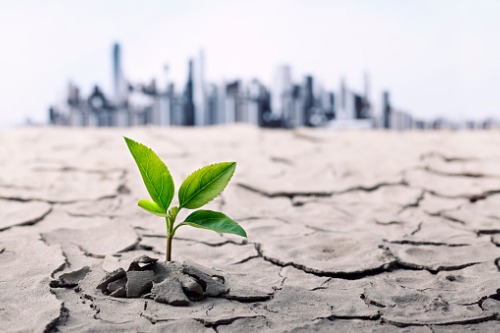But most Americans are not prepared for this or other outcomes

The potential for climate change to have an increasing impact on real estate is not being fully considered by homeowners or those thinking of buying.
An analysis from the Federal Reserve of San Francisco warns that floods and rising insurance costs will impact home values, with those in poorer neighborhoods most affected.
“This can be disastrous for a homeowner whose house is their largest asset and a substantial portion of their net worth,” the Fed report says. “This will have a disproportionate adverse impact on low and moderate income households. Obviously, this can result in a downward spiral of property values for such communities.
The Fed report concludes that among the 175 communities it included in the analysis that can expect chronic flooding by 2045, 40% have above-national-average poverty levels.
Not doing enough
Meanwhile, a new study by ValuePenguin shows that 47% of all homeowners are not sure they have adequate insurance coverage to protect their homes from a climate change related natural disaster and only 18% would pay an extra $500+ per year to ensure protection.
Meanwhile, two thirds of respondents who are non-homeowners said they haven’t felt reservations about buying a new home because of climate change.
Those in Texas, Arkansas, Oklahoma, and Louisiana are most likely to consider the potential dangers of climate change when thinking about buying a home; those in the Midwest are least likely to.
ValuePenguin’s survey found that 81% of respondents are worried about climate change.
Even among those that are skeptical that climate change is causing weather changes, 36% believe their city will get hotter in the next five years and 40% say not enough is being done about climate change.



